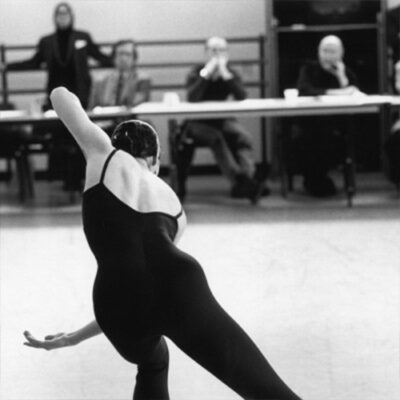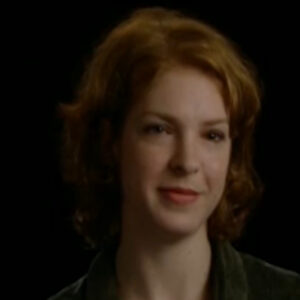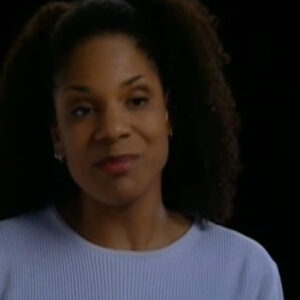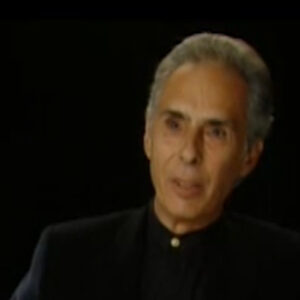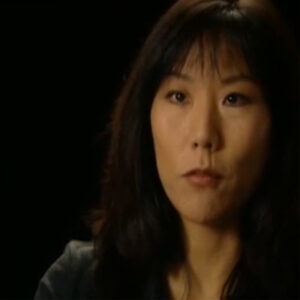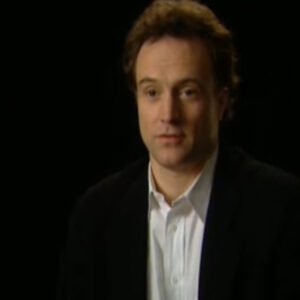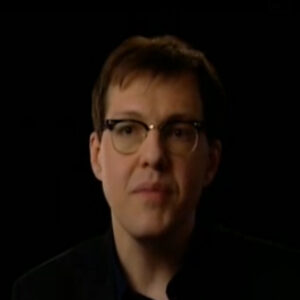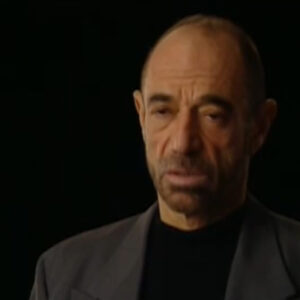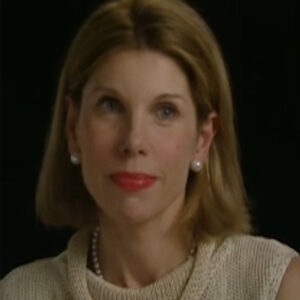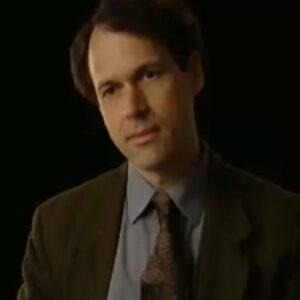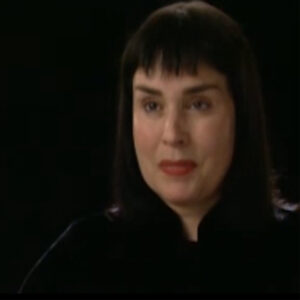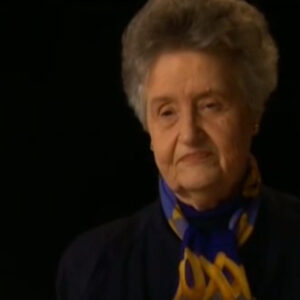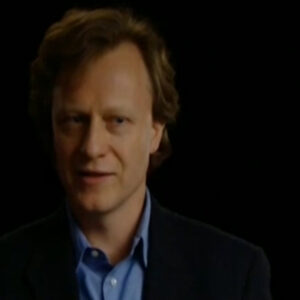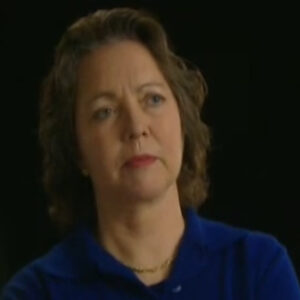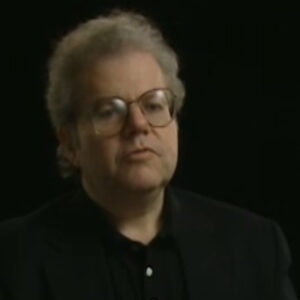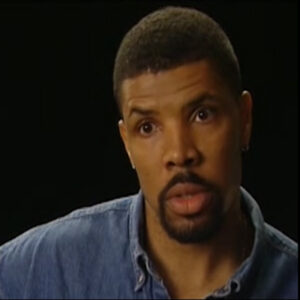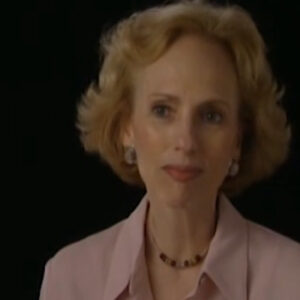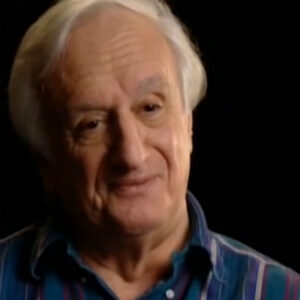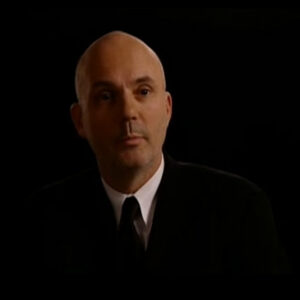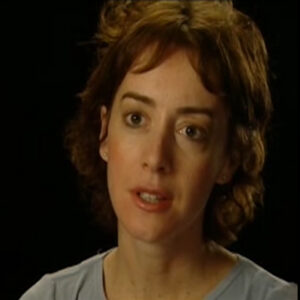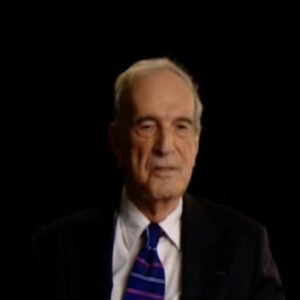Speaker Well, I had actually applied for two different schools. I was being pushed into a academic mode. I’d gotten into NYU as a psychology major. You know, so I could be a psychologist now. And that also gotten into Juilliard. So after talking to my mother, my dance teachers, and I told her, this is what I want to do. So I’d heard about Juilliard I knew was a great school. And I also had the opportunity to stay somewhere for free with Gary. DeLoatch was a principal dancer with Ailey at the time. So who’s from Philadelphia? We share the same teacher, actually, same teacher that Abdula studied under. So there was a connection through this woman face now. And so she called Gary. She said, look, you know, you’re on the road all the time. Why don’t you go and stay, you know? Or why did you have this guy stay there and you know? So I said, OK. So I moved to New York. And that was that, you know, was there the audition process was the first of many panels to sit in front of. You know, I get there, you know, there’s Martha Hill in the middle and Alfredo Corbino is a raspy cause. All my teachers were there. And. And I did something that face Noad choreographed for me. She was a Horten teacher. So it was in the modern dance vein. And I was always a fan of Ailey. So, you know, she kind of, you know, had did something that was sort of along those lines. And I got in. I mean, I wasn’t surprised that I got it, actually, you know, because I’ve been dancing for quite some time with the Philadelphia Dance Company in Philadelphia. So I was like the teen thing there, you know, because most everyone that I danced with in Philadelphia were older than I was. They were because I started dancing late when I was 13. So most everyone was like in their mid 20s, late 20s. And so Julio actually was my first experience dancing with my peers, people that had come from LaGuardia and from, you know, all of the United States.
Speaker So, yeah, it was a great experience.
Speaker And in terms of the you know, getting to New York, coming into Philly, I mean, this guy is here at that time. It was kind of getting into, like you say, in the late 70s, early 80s. You know, I think. Yes. How are you? How is how’s that for you? Of trip down. I mean, you were already from another big city, but it was strange.
Speaker It was very strange. I’d always been around mostly African-American people from modest to low income families and to be at Juilliard and like people talking about their trust funds and apartments that have been left to them, you know, that they were paying nothing for, you know, like stuff like that was very interesting. And I never been around that many, you know, white people before. So it was very, very interesting in that respect. A lot of times I remember him since I did live with Gary DeLoatch and he was a member of the Ailey company. When I would go home, they would all be there. And at the time we were through Juilliard graduates that were in the L.A. company, Marilyn Banks, Linda Sprague’s and Shirley Black Brown. So they would all tell me, you know, what to do. How did you actually know how Mishael was, you know, and. Yes. So it was a great experience. That’s sort of balance me out, actually, for the freshman year. You have three more to go. So.
Speaker And talk a little bit about. About, you know, the sort of daily grind and Julie, I’d like the classes, the rehearsals.
Speaker And also some of these characters that you’ve mentioned. You know, what was more of a lie? I mean, those are two sort of separate questions. Tell me a little bit about what was expected of you when you got there. And what were you you know. What was the program?
Speaker Well, you kind of found that everything sort of by word of mouth. Like, first of all, that freshmen don’t do this and freshmen don’t do that. You know, to, for instance, a freshman performing like in the in the spring consummately, a one concert that we worked all year for. And to get into the spring concert was a big deal. My freshman year, most freshmen dance with an I like. He had to go through the Anna thing, you know, and a Sokolow and which was a great experience. But the person that my freshman year really helped me out was Costco Hirabayashi, who taught Graham Bass modern. And she sort of was like the mother of the African-American dance population there. And she gave me a role in her ballet for the spring concert my freshman year, which was a big deal. My future is in a New York Times. And I was dancing actually with a girl who went on to the Ailey company, graduated from Juilliard. Nisha, folks should do it for us, you know, and it was kind of like, wow, like you’re a freshman, you know, and you’re in the spring concert, you know? So it was a great experience. I mean, I really.
Speaker Got a lot out of cause because nurturing because for the African-American students there in general, there was a still a ways to go on the part of the Giuliani administration to understand and artistic staff to understand the psychological and emotional beings that were coming into their space. It was around the time we were nearing the end of affirmative action. So we had lots of students here, not only in the dance division, but in the drama department. And we all had the same questions. I remember being in Michael and Wynton Marsalis, who would who would sometimes like to just have his own say about absolutely everything all the time. And it kind of opened my eyes to what was missing.
Speaker I come from a background in Philadelphia where everything was pretty much integrated. You know, like there were Jewish people. They were Chinese people, wasn’t wasn’t a big deal.
Speaker But at Juilliard, there was this kind of wall of separation that was there and sometimes it was very hard to deal with. One of the things that I remember was the Farrokh issue, the Farrokh dance issue. It was something that occurred. And every spring concert, apparently there was a wealthy benefactor who gave money towards this so that the Juilliard School would keep this tradition alive. And I was walking down the hall. And one of my. Another freshman, a white girl, basically was like, where are you going? And I’m like, I’m going to the audition for the role. And she was like, I don’t think you should go. And I was like, well, why is that? Because, you know, normally she didn’t really say it, but basically she was saying that African-Americans and broke dancing have not gone together. And she was kind of actually saving me. I remember I remember that very well. And I thanked her for it because I’m glad I didn’t go in there and embarrass myself. But I ended up having a huge, huge row with Wendy Hilton, who was a broke person there.
Speaker And and I remember Miss Hill heard this going on. And I think that she was kind of out of her realm. You know, she was from. I mean, we’ve seen the films of her a Bennington like, you know, all women, you know, upper to middle, middle to upper class, you know, taking hatboxes out of the back of cars and dancing in the grass, you know. So that was her sensibility. So I think she quite didn’t know what to do with this situation, you know? And I think there was a little bit of the idea of why would he want to do broke dancing, you know?
Speaker So after that, though, the next year, another friend of mine and Afro-American guy from Philadelphia, his freshman year was in the Buhrow piece for the next year. And ever since then, you know, they’ve had Farrokh dancing that maybe did. Doesn’t look like it looked originally, but maybe it looks a little better considering the world we live in today.
Speaker And how integrated was the school, I mean, when you came in? How many other African-American students were there?
Speaker I mean, the there were there were were quite a few more than now, actually. You know, there were Robin Ford was from D.C. You know, I met people from other cities, which was great.
Speaker New Yorkers like my one of my best, best friends while I was there was this guy, Ting Chan, Chairman Holland, who was from Queens. He was a five percenter, you know, which is a sect of the Muslim religion. So I kind of learned like this whole new because I never didn’t have five percenters. And in Philadelphia, you know, they were a little hats with little, like, strings attached. And he was a guy that kind of introduced me to like the black side of New York City, like going to the Bronx and going to Queens and going to Brooklyn, you know. So there were quite a few. There was Anastasia Bain, who was from Harlem, you know, and she showed me Harlem, you know, was a great, great. She’s in Germany now, I think doing some and I know what she’s done. I’m better. Yeah. It was there were quite a few. And we were all very close. I would invite them up to my house. The only guard, DeLoatch, I’m like, oh, my God, you love Gary DeLoatch, you know? So they would like to just come up and see Gary because he danced with the alley company, you know, and Gary was very sweet to them, very open, you know, and loved ASOL and kind of kept us on the right track in that sense.
Speaker But when you when you’re talking about the other, you know, actors, dance musicians, like, you know, we’re sort of getting outspoken and. And what what, what? I mean, you’re talking about in deaths. What the issues for something like Farrokh and you had to kind of like fight to find your place or to yammered for people to get a little bit colourblind at the school. And what was what was. What were people doing? I mean, what how how is the kind of sort of fight happening in the school?
Speaker Well, you know, there were times when. We would purposefully demonstrate the issue of Martin Luther King Junior’s birthday being a holiday was a huge issue with us. So every year at that time, we would wear all black.
Speaker However, I did have an issue with it my freshman year due to the fact that a lot of the African-Americans weren’t exactly exemplary in their behavior always. And I was like, you know, we can’t offshore for class stay if you don’t show up for class every day. So I got into a huge fight, this guy, Gregory Dasheen, over this, you know, and but in subsequent years, his birthday was made a holiday and it sort of became a moot point. And then in the classroom itself. We would sometimes purposefully stage, you know, a little quiet demonstration. You know, like we’d all stand together just to make it known that, you know, that we’re here and we would like some attention, you know, and it wasn’t just in the fact that the ballet department. They were actually a little more free where we thought we find our freedom was in the modern end of things. But a lot of times that was even difficult because, you know, there you were learning, you know, or auditioning for a Paul Taylor piece. I remember RVO, it was actually at the time. And the woman saying, you know, well, this is Paul’s ballet blunk, you know, so you have to remember that. And we didn’t know what she meant by that, you know? And, you know, other than the fact that it was all in white, you know, there was obviously something else. So then when we had they would at that point bring up Carolyn Adams. You know, Carolyn Adams became like like the the sum total of, you know, the modern dance experience being open to the African American contribution, which was not the case at all. We were used very sparsely as if it was ballet. So it was a hard road to go again cause Hirabayashi was responsible for allowing us to and giving us encouragement in that regard. Am my going on too long? No, no.
Speaker I’m just I’m completely listening because because when you talk about something like tailoring the ballet, blending, it becomes very clear sometimes, you know, I think.
Speaker For people like, it’s like, no, it’s an issue, you know, these issues are. But how do these issues really come to play for people?
Speaker Yeah, but something like that. See the sense of, you know, insensitivity?
Speaker Well, for me, it was definitely a sense of not so much that it was intentional because there was no thought behind a lot of things. I remember getting into an argument with an academic teacher, history Western culture teacher who insisted that Egypt was part of the Middle East. You know, I wrote in the paper that, you know, Egypt was a was on the continent of Africa and was an African country. And she said, well, you know, she pulled me aside outside the room. You know, she said, well, you know, we consider it to be part of the Middle East, however. And I was like, well, it’s not you know, this is what I know. This is what what I’ve been taught by my parents to believe, you know, which was a very important thing for me at the time, you know. And so so there was always this daily grind of trying to subtly. But. But, you know, you know, kind of try to open people’s minds and eyes to to what the people were that were around them, you know, the new people.
Speaker So.
Speaker At the time that you were there any effort to do African dance pieces or, you know, I mean, you were. You were at a different time now.
Speaker That was that kind of word or was that sort of like, oh, let’s do a token?
Speaker Did it make you feel a sense of exploring?
Speaker Well, you mean in the sense of.
Speaker On the part of the administration trying to make that happen or or the student body, is it only the student body that was really, you know, I mean, in the dance department, it was really challenging. We only had two studios and then a couple of workshops here and there. Most of the material that was used for the workshops came out of composition classes, dance composition classes. I got most of my inspiration, I have to say, from the men in the drama department who were much more aggressive and much more vocal, like I remember Wendell Pierce staging.
Speaker Mary Baracas, Dutchman, a one act play on his own.
Speaker You know, and as I kind of protested, like, this is a valuable piece of art here and it needs to be seen in this environment. And I remember going and actually it was a huge awakening for me because I was like, wow, like this is missing from this environment. So it was at that point that I began to more aggressively choreograph.
Speaker Some of things were good. Some these were not so good.
Speaker I also did started to work in more in a ballet vein, like once I got out of my formal because most of the dance competition in your freshman and sophomore year was more modern dance space, more exploratory. And I was really ready for structure and ballet. I’ve always been a sort of person. That’s why I ended up a dancer of Harlem, you know. So I got a lot of my inspiration from African-Americans, from other departments. And then I moved that over to where I was working. And so it kind of worked out that way.
Speaker Tell me a little bit about your father. Tell me a little bit about, you know, Martha, who was, as you saw in her mind.
Speaker She tried to build at Juilliard. What was her emphasis? What was she like as a person? How did you sort of interact with her at that time?
Speaker Well. Oh, Miss Hill, she’s. There was definitely a collision, a generational collision at the time. And we were just getting out of the 70s into the 80s. But, you know, I mean, 1968, 69, where. Right. Had just happened yesterday for her. So. Trying to meld her, you know, sort of WASPy sensibility with her new student body, you know, was a challenge for her.
Speaker You know, she she you know. So I think at times, like I you became other people. If she didn’t really understand you, like, she’d understand you, I guess, if you were a white person as an individual. But I always became Greg Burdge, who was like a Broadway who ended up doing a lot of Broadway. In fact, she recommended that I go to Broadway after I graduate from Juilliard, which I said no to, you know, but you always became someone else in her eyes just so that she could find a place to put you. You know, I don’t think that I ever had my own box in her in her mind. Like, I was never just Robert Garland. I was always something else, you know? So it was a challenge, you know. Although I loved you, I remember when I worked in the office after my knee surgery, I had a knee surgery, my sophomore or my junior year. And so I did a lot of work in the office there and which actually gave me precursor to what I do now, which is a lot of administration work. Miss Hill was very sweet and just just, you know, helping me along. And but there was still always a certain kind of not being able to connect at a certain level.
Speaker And it was a generational thing, you know. So.
Speaker She was am I being clear? Totally, totally.
Speaker You know, tell me a little bit, you know, for those who don’t know.
Speaker I mean, then and now. Right. These kind of. Well, it’s sort of the ballet at Juilliard where that was coming from. And then still this very heavy sort of Graham Taylor Lee Mon. Yoga classes. Right. Bases. That case is now. I mean, maybe let’s start with moderate. I mean, what? I mean, there is obviously this legacy. All of those people had been a student or faculty, actually. I mean, it was sort. It was. Yes. Real. There was a real garland going on here.
Speaker Yes. Roses. Yeah. Of that of the past. And and I think for those who don’t know, what’s the difference between granite table? Why is that?
Speaker Why is the conservatory teaching Paul Taylor’s technique instead of.
Speaker Yeah, well, you know, little just right.
Speaker Well, I’ve sort of I was sort of at the crossroads, like Taylor was not. He became or his his whole style started to come into the school and around my junior year. Up until that time, it was mostly lemon and gram. And then we all were told to switch to Taylor, you know, saw this. And we, Reverend Taylor, take me classes. We were performing esplin odd. I did. Espin actually actually my senior concert.
Speaker The modern changed. I think that that the winds have changed from the outside. Sorry. To blow to the inside of Juilliard. And so that’s when the Taylor thing happened. But we were asking like we’re OK. So if we get if they’re getting Taylor and why aren’t we getting Alvin Ailey? You know, eventually they did do. Alvin Ailey streams. But that was not until I had graduated. You know, so. So there was a sense of, you know, not still not being fulfilled at that level.
Speaker And I looked to my ballet teachers, Mr. Corvino, Mrs. Grassby Genya, Melikhov Michael Moore, who are we’re very supportive of my pursuing a classical career.
Speaker And they were the people that that kind of pushed me in the direction that I ended up going. Dance Theater of Harlem.
Speaker So so Mrs. Grassby particularly, you know, he didn’t mind. He did a ballet for me, for my senior project, which was such a huge compliment, you know, from him. And. And I think it was also his Latin sensibility. I mean, he was from South America. Corvina was from South America. You know, you got you could feel it sometimes in doing the work.
Speaker The the contribution or the cultural background of these individuals. I favorite LA mode for that reason also. Who was a Mexican. And so a lot of his work that I did, the Allama Lynch A. The unsung are dealt in basically other cultures. So so, yeah.
Speaker Did I answer your question, Paula?
Speaker Like what? I couldn’t tell, although I was like, no show.
Speaker You just run or just straighten up a little bit.
Speaker So, yeah, I was kind of sinking down into Georgia. Oh, OK.
Speaker Everything’s fine with me, OK. Were you actually seeing Alicia just researching it to tell him I’m sure it’s over safety. OK.
Speaker If you can explain to me, because I think it would be interesting from your perspective, having studied it. You know what? And if you’re seeing quite suddenly, you know, the viewer is thrown into a Graham class and then, oh, no, in class or even a tailored class, if you suddenly saw those.
Speaker What is the what is the movement? What is the what what what was what what was really about what is Lee what are you seeing when you see the what and why is that a technique, so to speak, other than her personal taste?
Speaker Well, it’s a little of both. I think that the early the early modern dancers like Graham and the Maon all did study ballet.
Speaker So they understood the ballet rotation of the hips. They understood that that the possibilities of of that kind of being flipped so that. When you worked in that, and I’d already studied Graham in Philadelphia with a lot of teachers and LA Mome was. Was new to me when I was there. I found it to be. Very, very interesting in how they approached it, because there was another kind of impetus behind the work. Working with Helen McKee, he Effa Winter, who came straight from Graham, who were with her in the development of the technique and the style definitely brought to the table something that I was unaware of.
Speaker But, you know, in the African-American dance experience, we always see things a little differently. So so when I got there, they were like, oh, you know, this is not right, you know? So we had to all adjust and kind of do the graham the way they wanted us to do the grass, you know, technique. And stylistically, the approach. And so there was a definite kind of lock step that you did fall into while you were a student there. It was very difficult to express yourself in a class. You know, you had to kind of understand it the way it was being understood. Enough said, you know.
Speaker So what is it? What is the classic? What is the classic Graham clap, if you like, literally.
Speaker I mean, what is it? What does it look? I mean, what what does that mean? What is it? Who’s this and what’s what’s Lavone?
Speaker Let me live a la mom. Yeah. The mom was was beautiful because it had a sense of release to it, a kind of free the body up and another kind of way and and worked well for the African-American students who who prior to coming to Juilliard, mostly had studied ballet. So. So there was a sense in LA mode where you could kind of understand your body in a way that was congruent with what she’d experienced as a teenager, wherever you came from. The Graham was sort of the same thing. You know, I remember Peter Sparling, who all the girls had a crush on. You know who? A dancer, the Graham Company.
Speaker He’d like blond hair, like down to, you know, here, you know, and he always, like, wore like a unit hard. And he was sort of well endowed to sit, for lack of a better word. And is this good to say? I don’t know. So the curls he would like go bananas with this guy, like sitting in second position on a four, like contracting, you know, they’re like, wow, you know, it was not a good moment for all the guys in the class.
Speaker You know, I’m a little like 19 year olds, you know, so. Yeah. Peter Sparling actually is in Detroit now.
Speaker I think he teaches at a college out there. So. So. Yeah.
Speaker I don’t know if I answered your question, but that’s a. Is. Well, you know, that was part of it.
Speaker You know, she.
Speaker Definitely was a major influence on the whole Juilliard identity, but one of the funny things that weren’t working with Martha Graham, you know, I mean, she had very well-defined ideas about where dance came from, some of which were could have been considered sort of distasteful, which completely to me, like had almost nothing to do with the Juilliard environment. So you had to kind of get to this idea that the contraction came from, you know, the first chakra for lack of a better description. You know, as opposed to understanding it as a technical thing. Like it was very hard for for for.
Speaker And I think they had a lot to do with the music departments surrounding us. Like, they kind of were around. It says it’s very formal thing. The musicians, they’re so.
Speaker It was a.
Speaker Interesting combination of things, I would say. You know, I’m trying to get to know the Graham technique and know her her danger. Know her. What she what was kind of great about her and still maintain that kind of Juilliard cleanliness. Like we’re the good people thing, you know?
Speaker So. How? How Juilliard, Juilliard, and the time you went there. How was it received when you took off Philadelphia and went to Juilliard? What were you going in there? Was there a huge mythology about this all the time?
Speaker Yeah, absolutely.
Speaker Yeah. You actually tell me back that there was this technology.
Speaker OK. Well, yeah, there was a huge mythology, the whole beginning of Juilliard with Tooter and with Gram and with the Mowen, all these wonderful people that were there to start this great thing.
Speaker I mean, Ballet Theatre, American Ballet Theatre, the ballet company had a very close connection via tutor and Margaret Krasker, who was another person, a ballet teacher there, who was responsible for Ms. Corvina. Ms. Corvino was a great admirer of Margaret Krass as a ballet teacher.
Speaker There was definitely a legacy and a history that one wanted to participate in. But there was always this little bittersweet irony of the school, American Ballet, because I’ve been told that all the offices were the School of American Ballet, had been at the time, were for Tutor and the Mon and Graham.
Speaker And once whatever happened happened with the School of American Ballet taking residence there. That kind of effectively dismantled the Juilliard hierarchy. And what was left was, were people that were there to rebuild that legacy. So it’s kind of strange going there now. And they have all that space now and but there’s no tutor, there’s no grand, there’s no the moon like vanguards of the American dance scene around now.
Speaker And it’s just well, the offices there, you know, and they’re there. It’s bittersweet.
Speaker It’s just. Very difficult.
Speaker How did he how did you even come to know her?
Speaker Well, Toure had the same teacher that I had a modern teacher in Philadelphia face. No. Who was responsible for, you know, wrecking me. I in fact, I did that. I think about it. I did have doors, one of doors recommendations for its application at Juilliard. So we had that in common.
Speaker She told me about this guy up tour who was a great, great dancer, had some some troubles with it, with his life in Philadelphia, but he managed to move beyond that and decided to go to Juilliard. It’s a there’s the African-American, for lack of a better word.
Speaker Psychology is still a very challenging thing for the world today, you know. And what I tried to emphasize, Theodore, is that he has to finish. He has to go through this process. And there will come a time when he will be able to fully express yourself. But right now, you need to stay there. You need to get a degree. And actually, it was one really challenging moment where I went in to speak to Mr. Harkabi. Benjamin Harkabi is a director there now of the dance division and about a door. And he let me know that, you know, I mean, dealing with Abdool has been a very, very challenging thing. Door has a lot of things inside of him. What are my favorite phrases? Something by WBB Dubois, which is two warring souls locked in one dark body whose dog is strength alone, keeps it from being torn asunder, asunder. And essentially he is describing the African-American experience. And that is where I think Juilliard may still be possibly lacking in understanding that that there are two warring souls in this individual, one African and one American.
Speaker And they you’re seeking to meld these things experientially and sometimes you do and sometimes you don’t. But one must be supported in that effort, even if you don’t understand it. And a lot of times you you won’t understand it as an outsider, you know, and and I would say for anyone of another culture in that environment, you know, has to deal with that on the daily, you know, so.
Speaker So, yeah. So that was a tense moment. But he’s graduating this year. He’s graduating. And I am so, so happy about that, you know, that he made it through, that he did it and he retained a bit of himself through the process.
Speaker You know, if not all this and what was when you talk to somebody like Ben about someone is so different than him.
Speaker What I mean, because I talked to both you about something that, you know, they’ve you know, we’ve really agreed to have made part of the movie. And afterwards, like you say, whatever you want to say about me that, you know, because it’s been really it’s really been interesting just to follow someone from a film standpoint. It’s really working so hard. And I find it so talented. I mean, the reason I think about it initially is that I went and saw Dan’s piece that he choreographed.
Speaker Yes, he it’s really interesting stuff. And then kind of were warring with, you know, don’t look down, don’t know. Don’t look like this. Right. Don’t don’t don’t wear black because classer.
Speaker I mean, what was Ben like when you went and actually saw him? I mean, what did it come to that you actually thought he wanted to talk about and how did it even come into?
Speaker Well, our field of vision, when you know you’re busy doing, you tell him stuff. Well, he called me from Philadelphia and he said, Bobby.
Speaker Bobby, you’ve got to go over to Juilliard. You got to go go see what’s going on with Amador. He’s saying that he doesn’t want to finish, you know, blah, blah, blah. So I was like, okay.
Speaker So I called a door and I told him I would come by and we sat and we talked for a long time for I feel like a door at a lot of the kids that are there now.
Speaker If you come from. Certain environment, you have arms. You can get on.
Speaker And I think at times hurt people that are in administrative places that aren’t from that culture may Miss Reed a lot of their actions. A lot of the way one responds to things is something else. When it really isn’t that at all, you know, even if the person is, you know, openly, like saying it’s not that sometimes they’ll get the impression that they’re either not being honest with them or whatever. I feel like in a Dors case that that is what has occurred. He grew up in an environment where he had to wear a certain armor. And when you get to Juilliard, you don’t just drop the armor because it’s a wonderful environment. You have the freedom. It’s a whole process of trying to to mail the two things that I spoke of earlier, the African American, you know, and and Julia is definitely about the American and the African work has got to be done by adore, you know, so. So that you have. A person coming out that will be balanced in that sense, be able to negotiate in the world in a certain way. So it was a challenge. It was a challenge. And it was really hard for me.
Speaker Watching him still go through this so many years later.
Speaker Because I mean, I hope that things would be different now. I mean, they do have some things are different. You know, Martin Luther King Junior’s birthday is a holiday now. You know, they have like an African-American History Month celebration that everyone participates in. All great stuff. But the core the core of this whole thing, I think still may may need a little work.
Speaker Sam.
Speaker Well, it’s steeped in this kind of. Antiquities, music, gold.
Speaker You know, your history. Yes.
Speaker Yeah, I think it’s hard to break this kind of barrier. Right. And how how interestingly about how how did how did Ben respond to some of your thoughts about this? Was he interested in. Was he open minded? Did he sort of get an interesting.
Speaker Since he was he was incredibly open minded, he was he was great. He understood.
Speaker He understood it to say his name. Start again.
Speaker Oh, OK. Sorry. Well, Mr. Harkabi understood when I spoke to him, he knew that there was something there.
Speaker But quite was dealing with it the way that he could. You know, I don’t think that a situation like this may not have presented itself to him in this way before.
Speaker I felt that or I feel like they could possibly reach out a little more to people that, you know, like myself or anyone else that can come in and sort of help the kids through this.
Speaker You know, as you can said you could effectively helping to understand why they’re feeling the things that they’re feeling. How much of it is real? How much of it is not real? And why were the why? You know, and and the reality the reality of having a degree from the Juilliard School and working towards that end while you go through this. So he was very responsive and and and said to me that, you know, he has not given up on him.
Speaker You know, I was like, well, that’s all I wanted to hear.
Speaker How much how important do you think it is? I mean, you know, you’re part of a major company.
Speaker How important is it and what does it really mean when someone comes into an audition and you see Juilliard? What does that mean? In the in the world, in the world of companies. Well.
Speaker It used to mean one thing, it used to mean that the dancer was essentially a blank. I think being at Juilliard, OK. Being from Juilliard, being from Juilliard, a dancer, being from. If I were to see Juilliard on their resumé, I would understand that they had a certain ability that they were sort of like a blank canvas.
Speaker Although I would say that that’s the one thing that Benjamin Harkabi has done there. You’re not so blank when you leave like there. There was this idea that, you know, you’re sending people out into the world. So we want them to have a lot of understanding, but a lot of equanimity in their artistic approach to things just so that the idea was to open you up to more a more like a user friendly, for lack of a better term quality to your work so that you could essentially get a job. Benjamin Ha kavi under his direction. I’ve noticed the dancers have more style. But see, he himself ran a ballet company. In fact, when I was at Pennsylvania Ballet. Years ago in my teens, us studying as a student, Benjamin Harkabi was the artistic director there, along with Barbara Weisberger. So he ran a company. He understood he understands from the inside out what a dancer needs to negotiate in the world to get out there and get a job. You know, which which is his concern. It’s very different from Mishael and Muriel topass, you know, so that when I go there now and I see the dancers, there’s a there’s a there’s a much more. Again, I use the term User-Friendly way that they move. I mean, now Juilliard graduates are getting directly into companies. They used to not happen. You know, there was a period where you had to kind of find your niche and then move into a company from there.
Speaker Now they’re getting right in, which is a good sign, a good sign that that Benjamin Harkabi is doing the right thing.
Speaker You know, in that regard.
Speaker Well, if you can, the last question, you know, is if talked a little bit, it’s a very ethereal question.
Speaker But this idea, you know, of this sort of importance of keeping the arts alive and somehow this this sort of spiritual journey of becoming an artist as a dancer between technique and artistry. I mean, everyone is on their own, sort of. Journey. But, yeah, there’s a real difference between, you know, mastering something at the bar and becoming a professional, you know, with something to offer.
Speaker Yeah, yeah.
Speaker I mean, how does how does one how does Juilliard. What is. Its not in that. How does it work. It. Can any school tackle that experience. What is your sense of it. Having been there and out.
Speaker Well it’s, it’s been very, very interesting now that I’m resident choreographer for Dance Theatre of Harlem. A lot of what I learned at Juilliard, you know, it’s really funny. Like Juilliard. You know, there’s a there’s a book. Everything I needed to know, I learned in kindergarten. Well, Juilliard was a kindergarten. And now that I’m a dancer of Harlem, I’m realizing that everything I needed to learn, I did learn there from a from a structural standpoint. I mean, choreography is about structure. And I successfully actually up or for myself, I feel like I’ve gotten to a space where I can approach my work and and kind of give a little more to the ballet environment. From my experience at Juilliard. If anyone were to look at my work, it would take only it would take a Juilliard student to be able to look at my my work that I do now and be able to say, oh, that’s a little tailor.
Speaker That’s a little amoun. That’s a little grand there. Here comes about. I you know, it’s all in there. All of those all the pieces of that pie. And I’m lucky to be in a position now where I’m able to to express that and to meld those things together with an African-American sensibility behind it as a kind of cultural force. So so, yeah, I mean, it’s really been a large contributing factor.
Speaker I’ve said like in the past, and I still believe this, that experience in the works of tooter experience, in the works of Taylor, you know, have helped me get to where I am now. It’s done a lot for the quality of my work, you know, because I knew that they had such high standards, so. To answer your question, yes, they did.
Speaker And the. And what do you think is this this this move from technique to artistry?
Speaker That just he got it. Or you adult or I mean, then let’s head to me now. It’s very hard to become an artist, but at least we’re not afraid to use the word artist at Juilliard. Right.
Speaker Gosh, you know, there’s a there’s a saying by a woman, Marish Campbell, who’s the dean of the Tisch School, where she says that art has an anarchic purpose. And I think that for myself. In order to become an artist, you have to have a sense of a little sense of anarchy inside to challenge the norm because you’re given a lot of norms, particularly at Juilliard. You know, you have the Graham Norman Lamont Norm and the ballet norm, you know, the tutor norm, you know. And in order to create art, in order to become an artists, you’ve got to anarchically address from the inside out these different factions and create a war, you know, and from which comes yourself, you know, and your ability to express things that are beyond your training. You know, that is. And that, I think, is part of what actually Abdula could be experiencing right now.
Speaker You know, the idea that he knows that great artists get there not just by learning the technique, but also learning to question the norm, you know, so.
Speaker And in some ways, ground breaking, she wasn’t the nor did she.
Speaker She was not the norm. The norm.
Speaker Yes. I mean, you know. Yeah, yeah. I mean, yeah, you have to have that.
Speaker You have to have a little bit of that because otherwise you kind of just float through.
Speaker And I think for for particular for today’s world, you know, like these kids go to this school, you know, they have huge debt. You know, sometimes some of them, they come from meager backgrounds. You know, they have to get jobs, you know, save to figure out how to make themselves sellable at a certain level, you know? So you have to get there quick.
Speaker So hopefully, you know, doable do OK in that regard.
Speaker Haneef. And Sunday and all of them, you know, because they I’ve all had them actually as part of the school dance theatre of Harlem. At one point in time or another, you know. So when I go there, you know, if they’re there and they’re happy to see like a Juilliard student came over to New York City Ballet and wanted to watch rehearsal there when I was rehearsing with New York City Ballet and Dancing of Harlem, new collaboration. And it was just interesting because he just wanted to watch, you know. And although we couldn’t let him watch because we were in the middle of the process, it was great that he showed an interest. And I kind of barged his way anarchically into the New York City Ballet studios and just like ended up plop in front of me in it before rehearsal. You know, in fact, I had to go back there and talk to him about that because I just want to because even though he didn’t get to see a rehearsal, I still want to be able to give him the information that he was looking for, you know, like how to do this, you know. So, yeah.

